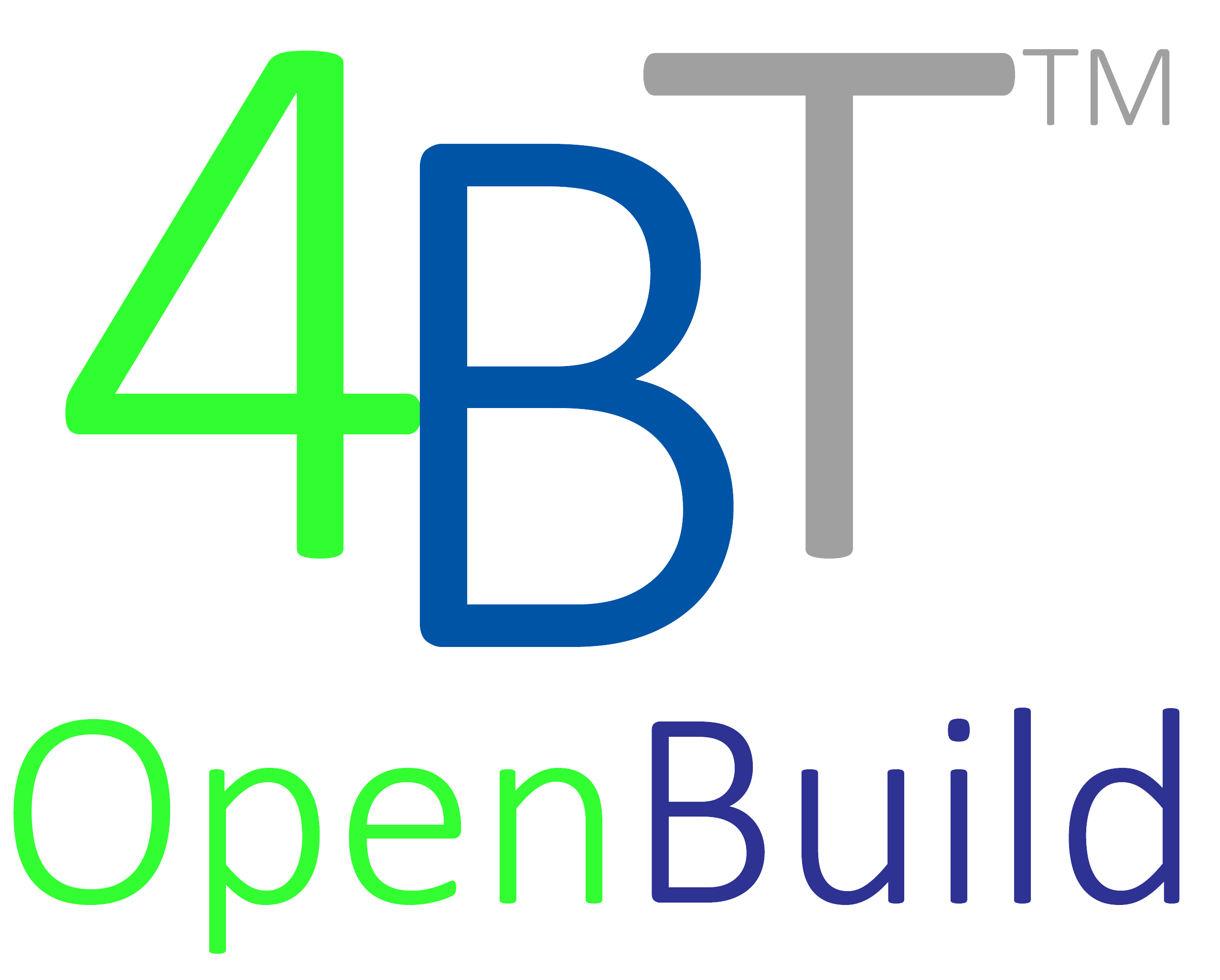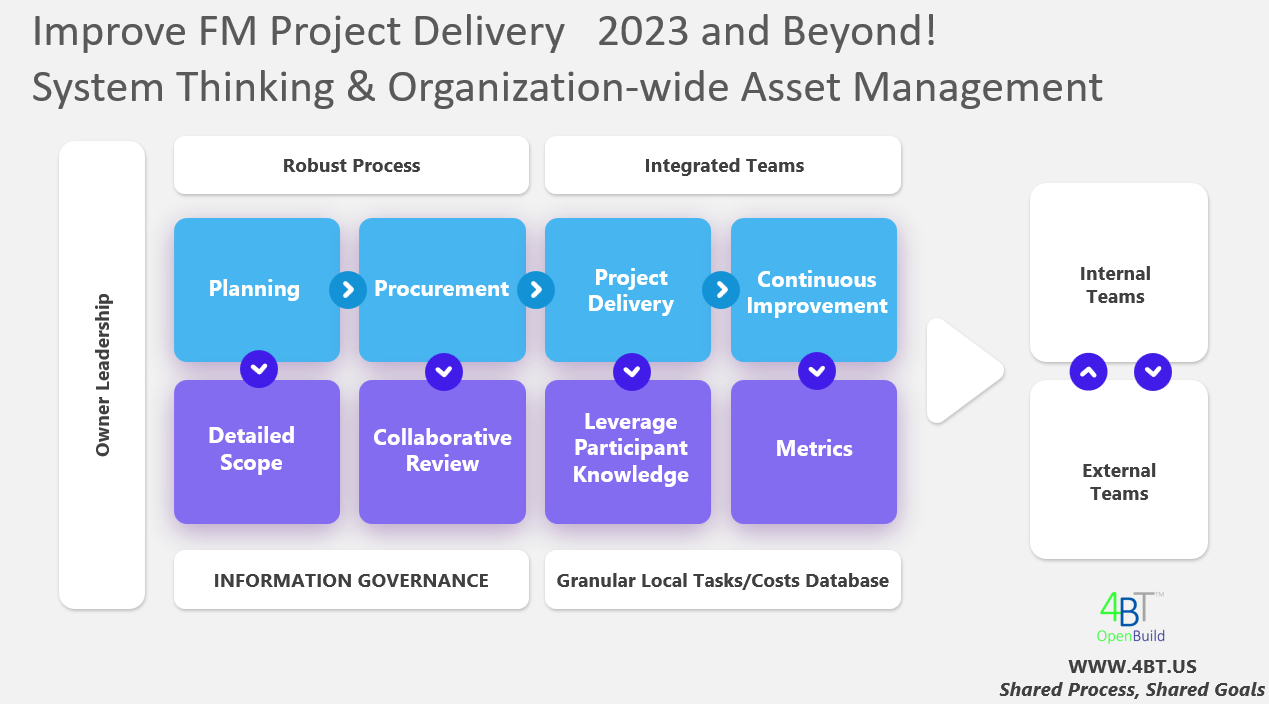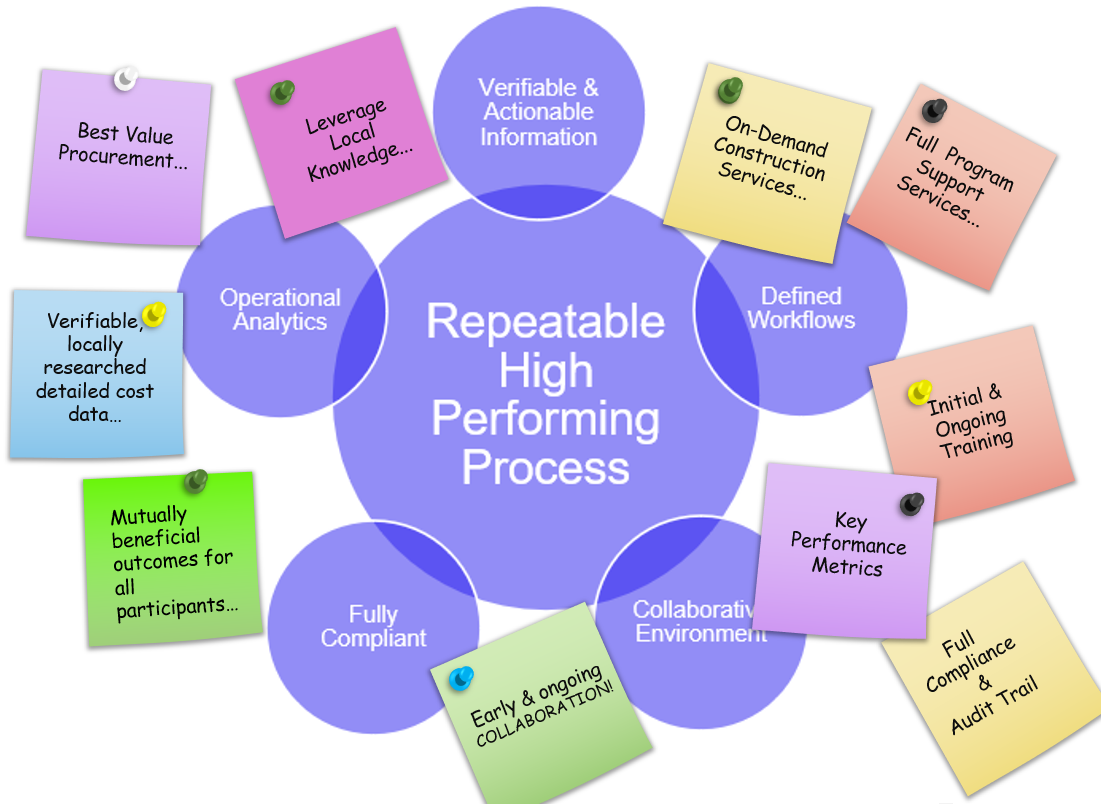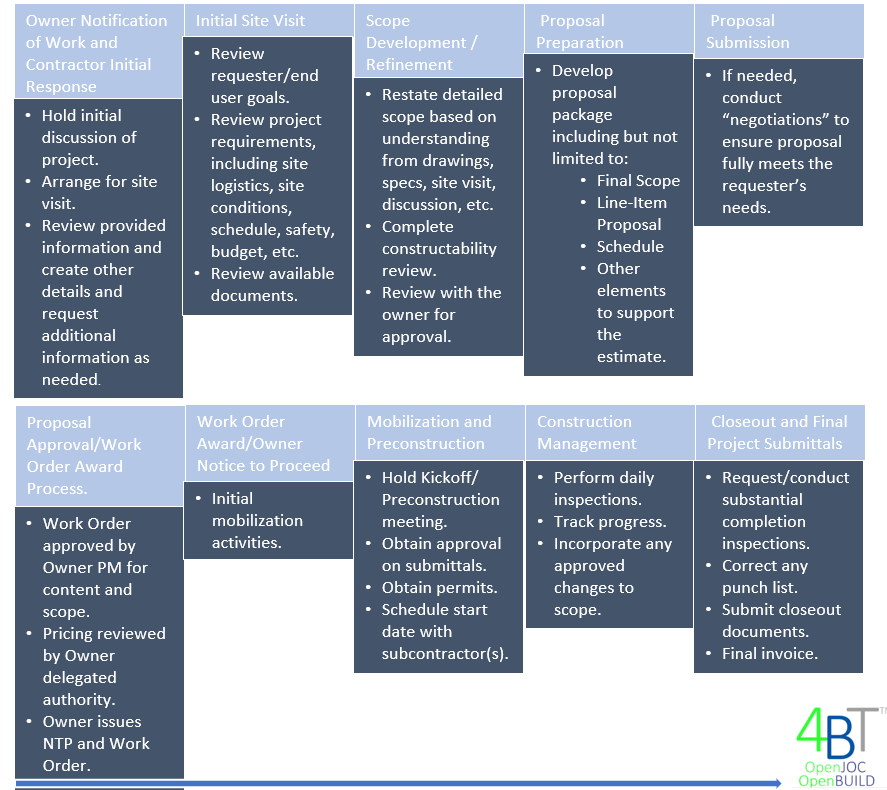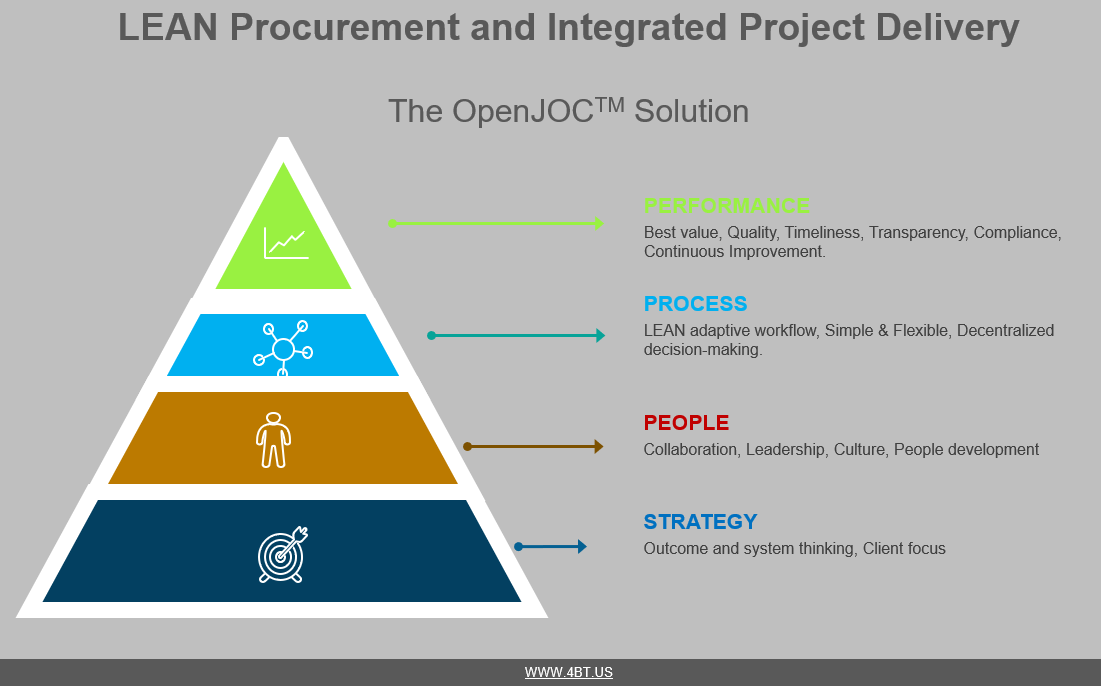Construction Project Delivery Job Order Contracting90%+ quality, on-time, on-budget project delivery
LEAN Construction Delivery Solutions for Owners, Builders, AEs, Facilities Management
LOCALLY RESEARCHED DETAILED CONSTRUCTION COST DATA
CLOUD COST ESTIMATING & PROJECT MANAGEMENT SOFTWARE
FULL JOB ORDER CONTRACTING SUPPPORT SERVICES.
Paying too much to support your JOC Program? Time for improvement? Looking to start a JOC Program?

The benefits of JOC are significant for all project participants. A professionally designed and implemented job order contact can consistently deliver 90%+ of renovation, repair, maintenance, and minor new construction on-time and on-budget, with far fewer change order or legal disputes.4BT’s LEAN Job Order Contracting Solution is based upon the following principles…
- Best value procurement
- Early and ongoing collaboration among all project participants
- Jointly developed criteria/scope of work
- Financial Transparency
- Use of common terms, definitions, and data formats (CSI MasterFormat)
- Monitoring and key performance indicators – KPI’s
- Shared risk/reward
- Ongoing education and training
- Organizational support, “top-down & bottom-up”
- Global oversight and local action
- Longer term relationships/commitments
- Continuous improvement
- Supporting technologies
- Performance-based incentives
- Mutual trust and respect
- Detailed execution guides

Robust preconstruction activities are critical to the success of any repair, renovation, maintenance, or new build activity. These include integrated planning, procurement, and project delivery teams and methods and advanced work packaging. A process-driven planning and collaboration system for any form of facilities capital project that, sharply focused on creating a constraint-free work environment in the field, and maximizing resource utilization requires that detailed work packages be created early in the project life cycle.
These work packages must be informed by a written Project Execution Plan or Operations Manual and detailed, granular, and current local material, labor, equipment, and productivity cost data organized using expanded CSI Masterformat that is objective and verifiable, and supported by a comprehensive and disciplined stakeholder integration including owners, engineers, design-builders, and procurement staff. Removing field constraints — ensuring that the right people, equipment, materials, instructions, are in place to complete work, increase labor productivity and improve project outcomes.
For these reasons, robust collaborative construction delivery frameworks such as integrated project delivery, collaborative job order contracting, and project alliancing, all using a common data environment are currently considered best practice in the fields of facilities lifecycle management, spanning planning, procurement, construction, and adaptive reuse.
Standard systems bring in construction teams late in the overall planning, procurement, and project delivery cycle, whereas collaborative methods ensure design/builders are involved in planning from the outset. Standard systems organize fail to organize work as discrete construction tasks with informed labor, material, equipment, and crew information.
The use of an objective, verifiable local market construction cost database (vs. national average cost data, location factoring, and/or lump sum quotes) provides full cost visibility and transparency and enables the creation of appropriate work packages and informed decisions relative to work schedules and materials availability.
A detailed line-item construction cost breakdown by trade best enables specific trade crews to operate independently for a specified period in concert with the need for integration with complementary teams. Project managers can be informed of the length of time required for standard commercial construction tasks and flexibly adapt resources as needed. This approach greatly aids in creating a constraint-free work environment by ensuring that crews have all the materials, equipment and information they need to execute and that associated costs are well understood by all stakeholders. Achieving this requires highly integrated project delivery system in which AECO teams are working collaboratively.
It is virtually impossible to visualize and manage executable discrete construction (new build, repair, renovation, or maintenance) tasks at the work order level without a reliable standardized unit price cost database. Attempting to manage project execution without defining granular executable tasks, while commonplace, is a recipe for financial and environmental waste as well as poor team relations. Field crews must have everything they need to complete their work, including tools, materials and construction specifications. Skilled professional cost estimators, working in concert with civil, structural, mechanical engineers, tradespersons with engineering experience, and supported by a verifiable standardize cost database architecture, can significantly improve outcomes on a consistent basis.
Four BT, LLC has done the work required to standardize data collection and streamline information sharing between project stakeholders, in service of project goals. Our tools and services greatly improve stakeholder collaboration by breaking down information silos and facilitating timely access to accurate, up-to-date information. This work involves local, regional, and national research of labor, material, and equipment at a granular level, without reliance upon “location factoring” or “economic factoring”. A common, shared resource of verifiable construction task data enables all stakeholder organizations (owners, designers, builders, suppliers) to better manage the entire project lifecycle. Knowledge management is critical in today’s world and objective, reliable data measurably improves collaboration and overall outcomes for all stakeholder groups.
